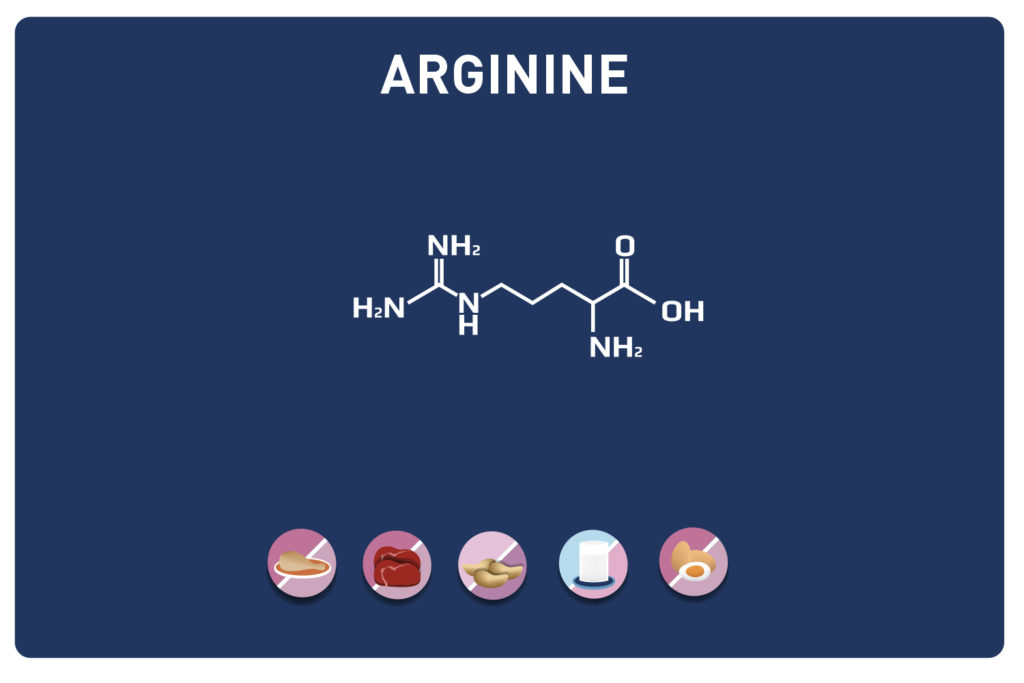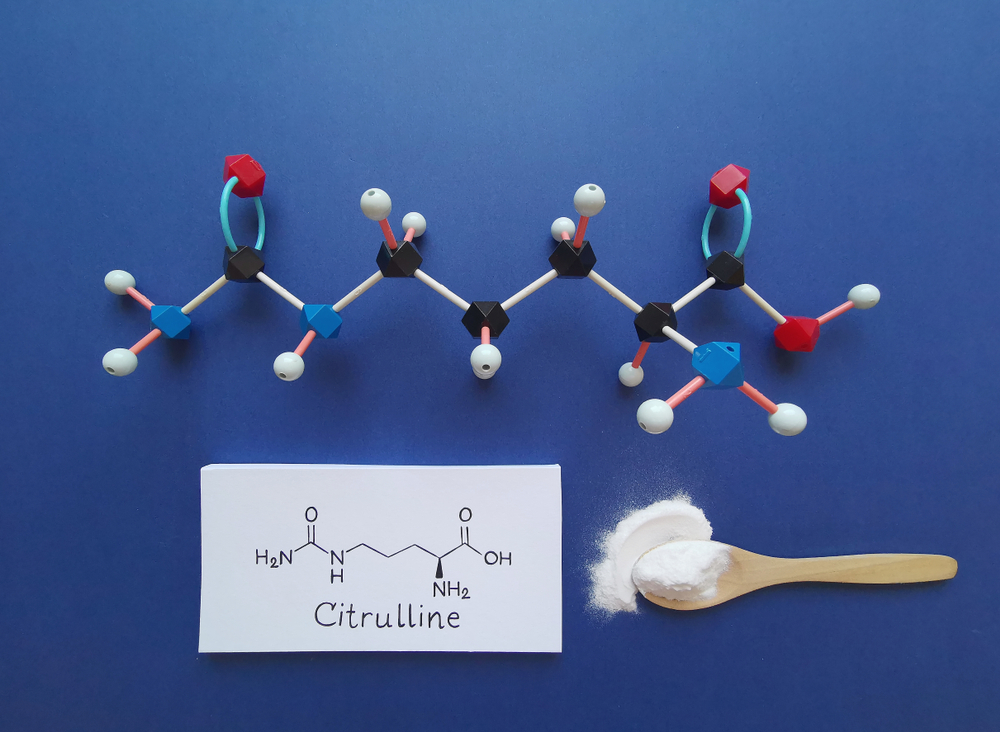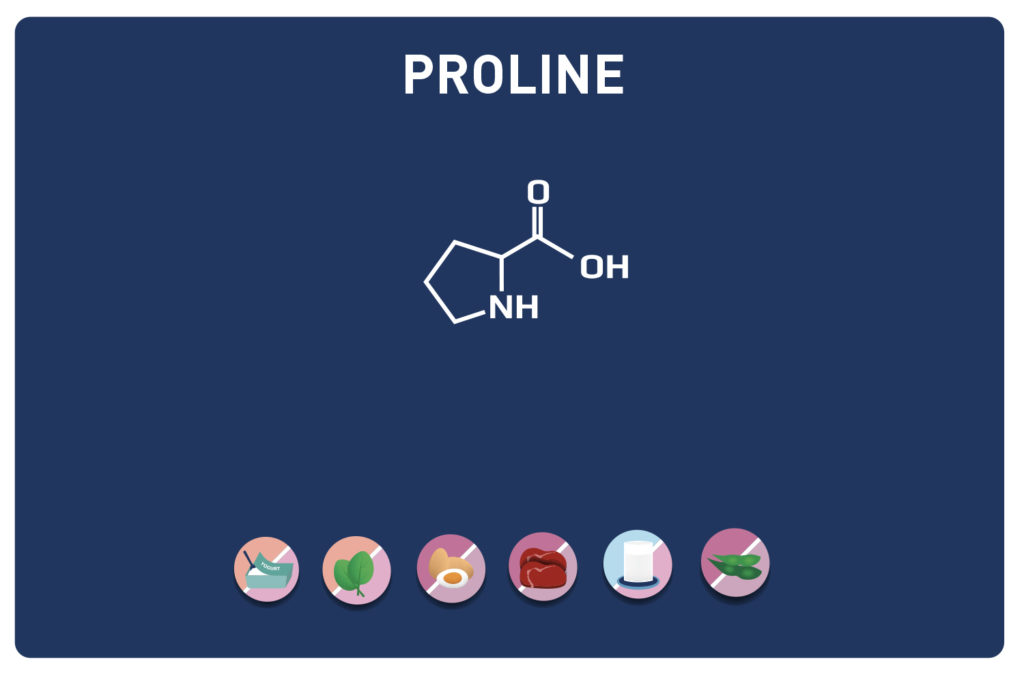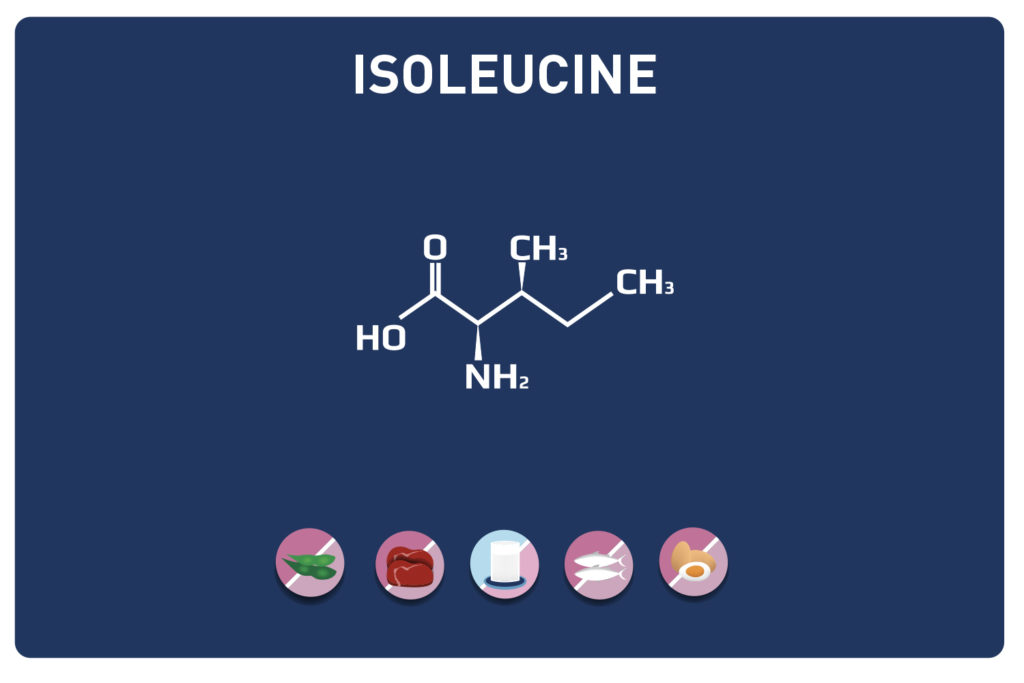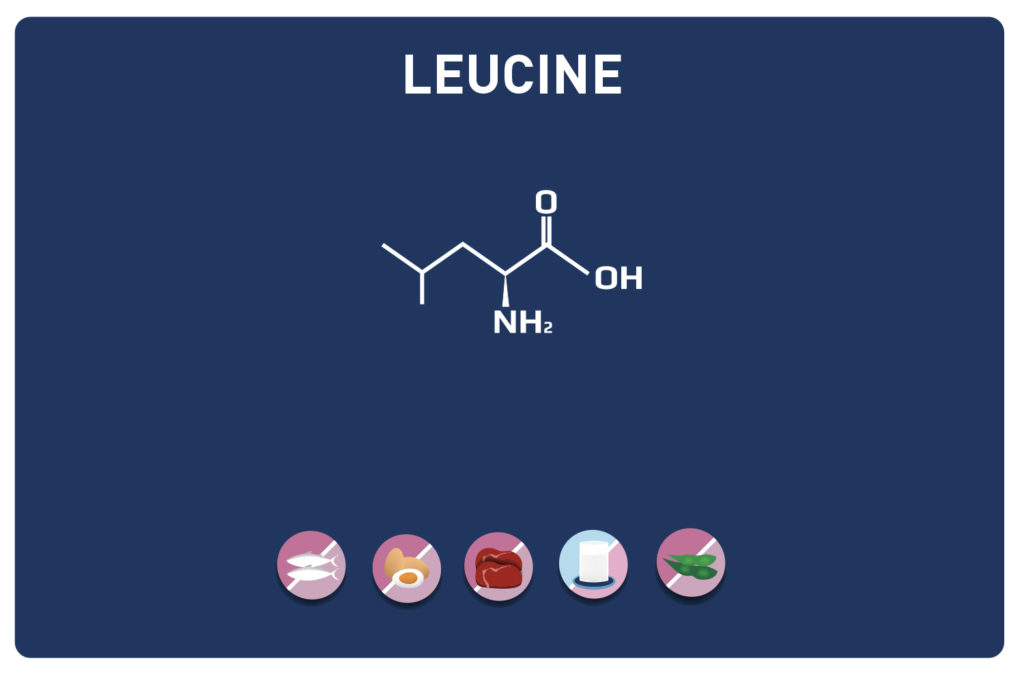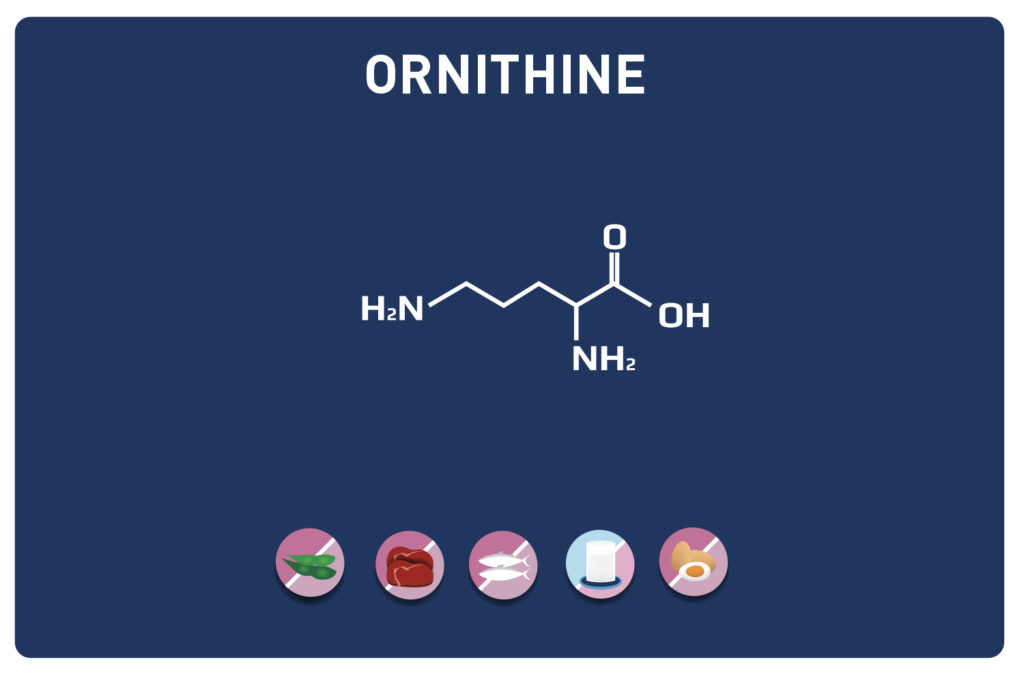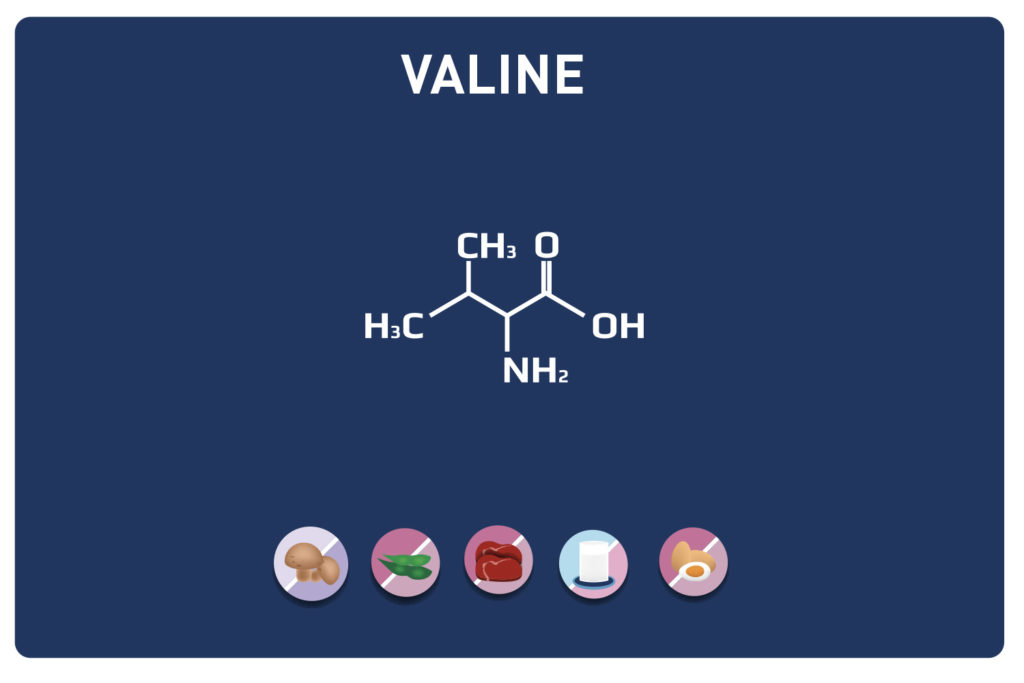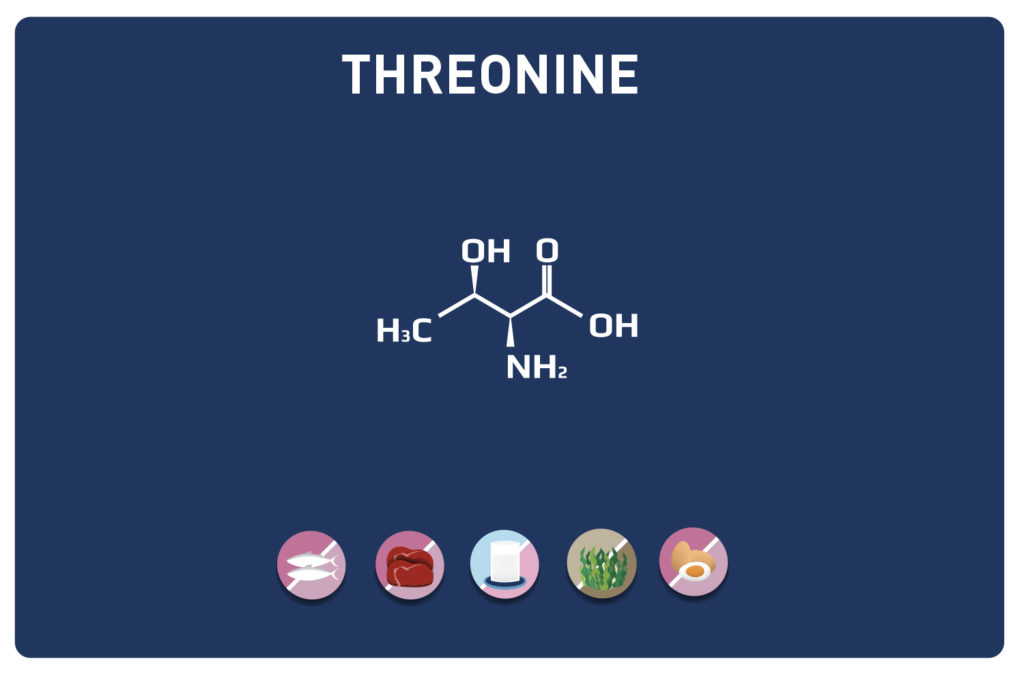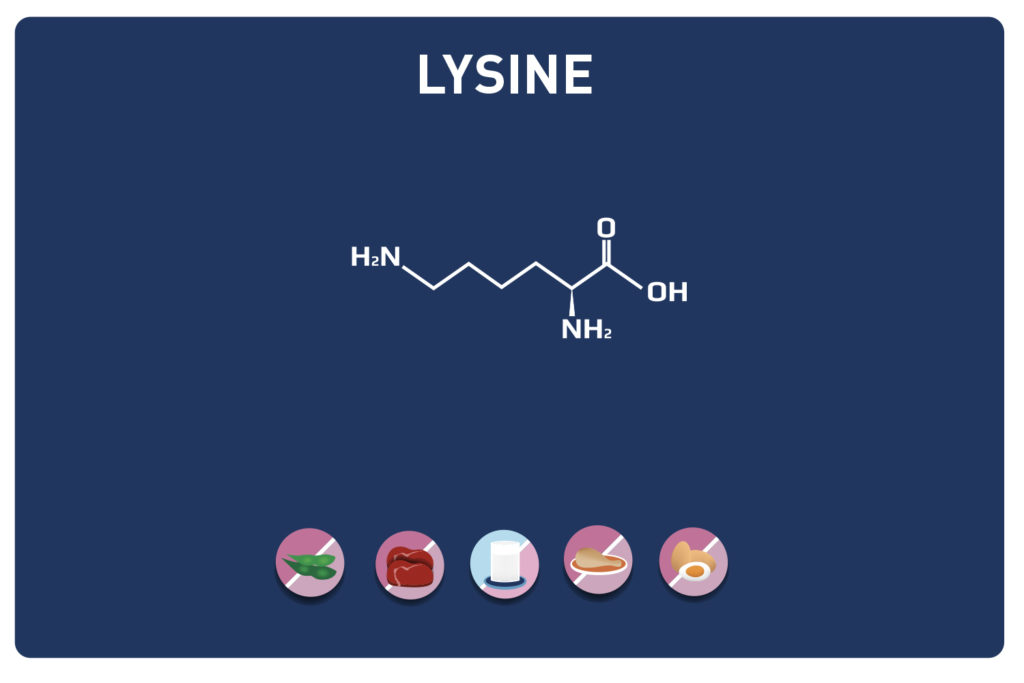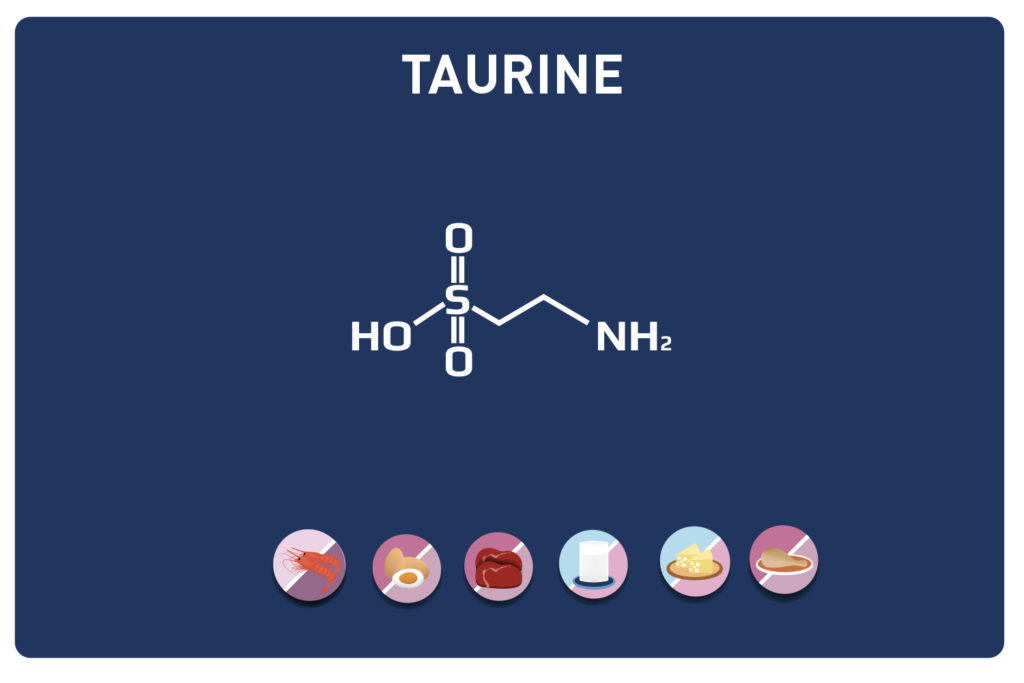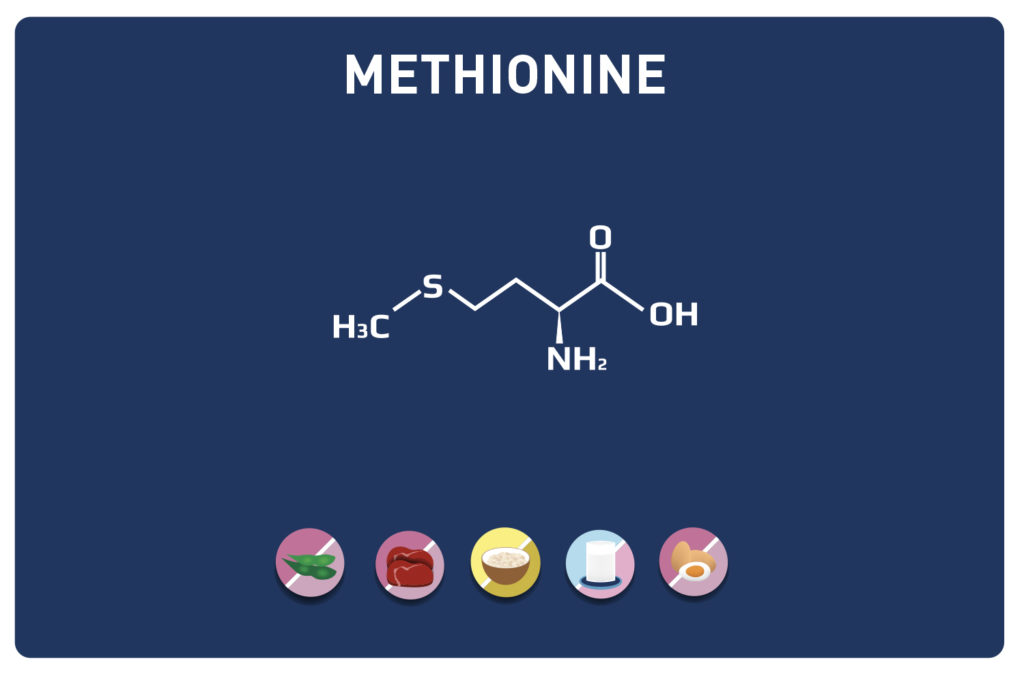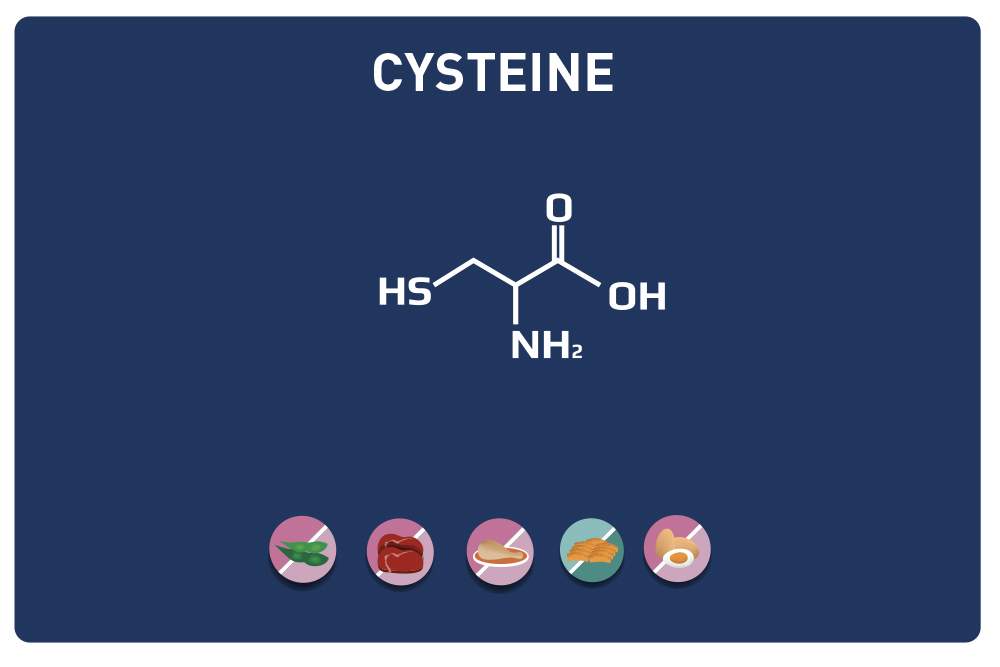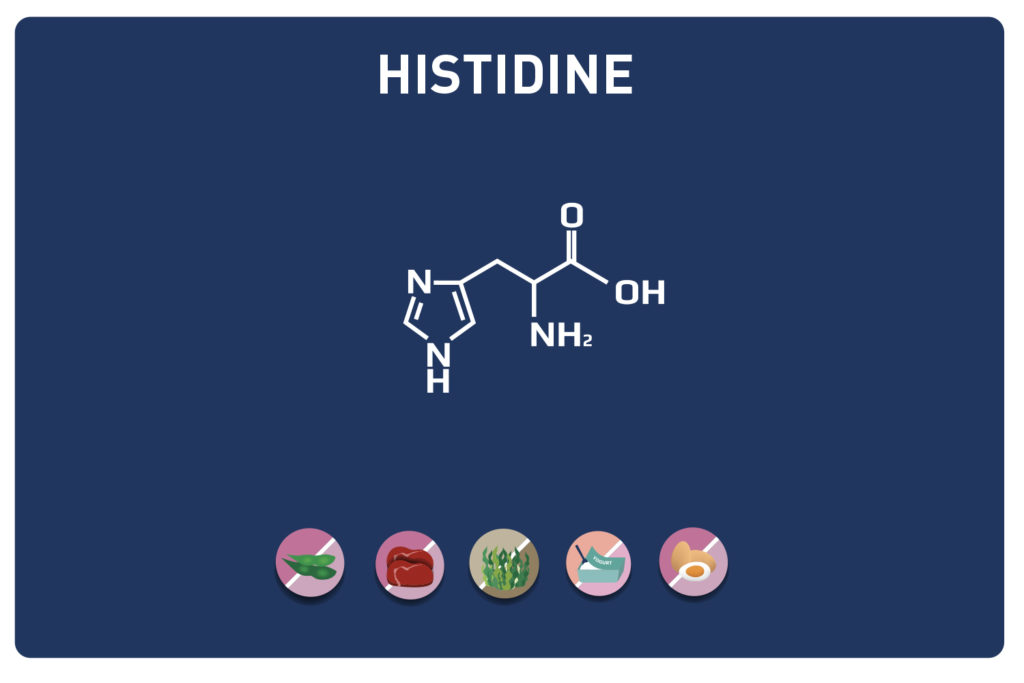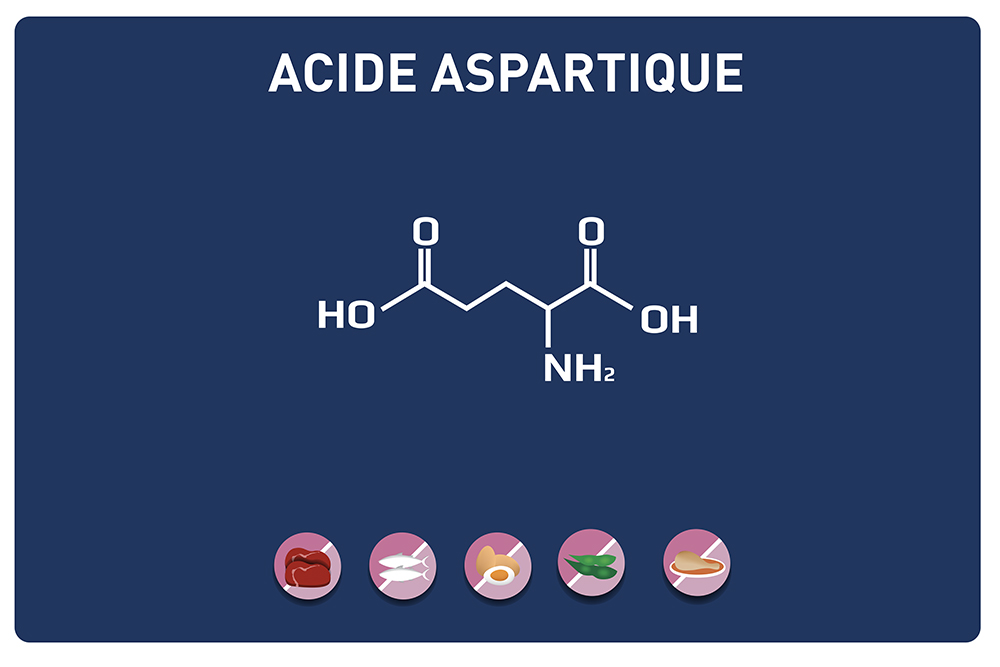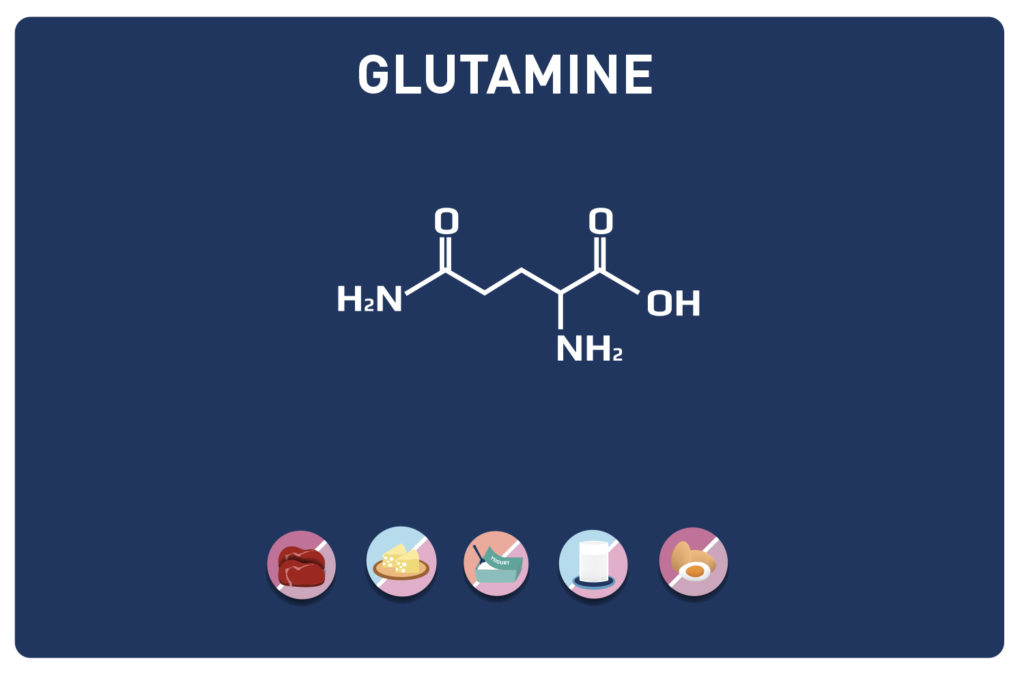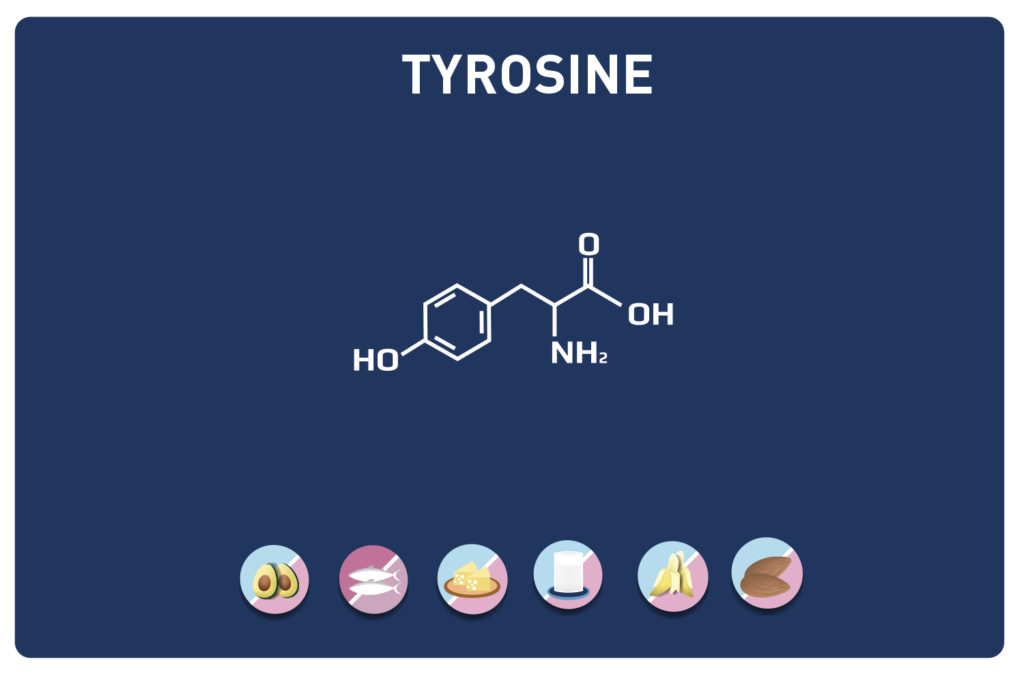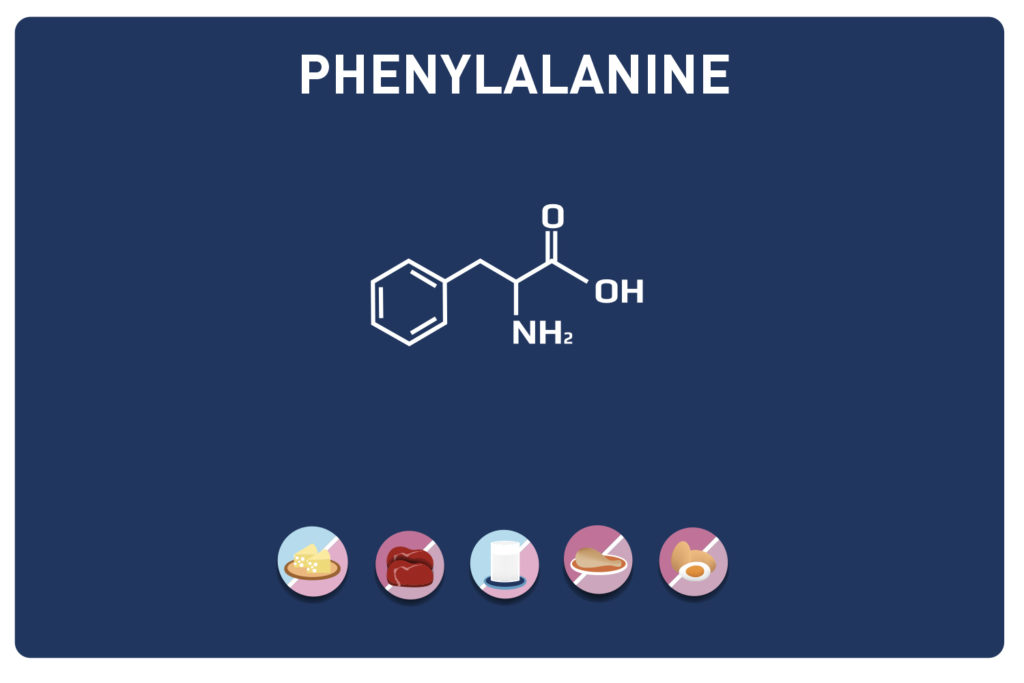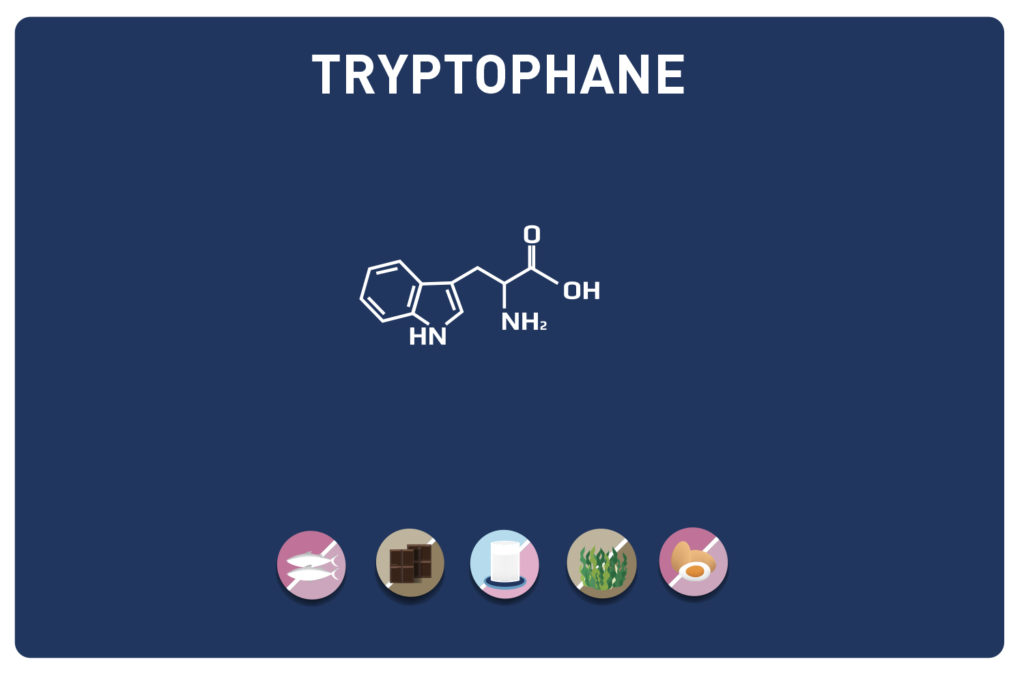Do you know about arginine, this amino acid playing various roles in the body? In this article, find out everything about arginine: its functions, its main sources, its role in athletes, its consumption and advice for use.
Arginine, what is it?
Arginine is a semi-essential amino acid discovered in 1886 by the Swiss chemist Ernst Schultze, who isolated it from a leguminous plant with digested leaves. Known by the symbols Arg and R, it is synthesised by the human body, and plays many roles in our metabolism.
Functions of Arginine in the body
Arginine has many functions in the human body:
- It produces nitric oxide, a substance that dilates the blood vessels and thus promotes good blood circulation.
- Strengthens the immune system.
- Stimulates growth hormone.
- Helps create creatine, a nutrient that helps build and strengthen muscles.
- Helps to speed up the healing of wounds.
- Facilitates the elimination of ammonia from the human metabolism.
Main sources of arginine
In principle, the body produces the amount of arginine it needs. However, there are some people who have a relatively high need for arginine, and the endogenous supply is no longer sufficient. These include people who have undergone a major trauma, children in their growth period, victims of a serious infection or surgery. In these cases, supplements are necessary.
Arginine is found in various foods such as hazelnuts, peanuts, dried sunflower seeds, almonds, beans, pistachios, fish, lentils, red meat, poultry, dairy products, etc.
Dosing of arginine supplements
Many factors can determine the necessary dosage of arginine. These include diet, health status, treatment, etc. In most cases, 5 to 15 grams per day is recommended, but this can vary from person to person. For children with an infection, for example, 6 grams per day are needed, while post-menopausal women are advised to take 14 grams.
Arginine and sport
The consumption of arginine is common among sportsmen and women for the many benefits it is said to have, particularly for increasing sporting performance. But is there any truth to all these preconceived ideas about the effects of arginine on physical ability?
Arginine to improve sports performance?
It is not uncommon to see websites and forums extolling the virtues of arginine supplements on the performance of athletes.
This is certainly because it not only creates creatine, a substance involved in the muscle contraction process, but also produces growth hormone for rapid cell regeneration. In fact, a preliminary study in 1989 showed that by consuming arginine for about a month, bodybuilders had more strength and muscle volume.
However, at present, much research has concluded that arginine has no effect on the physical capabilities of athletes. Indeed, it does not improve the endurance and power of athletes, even if taken in large quantities.
However, even if the effects of arginine in athletes are not conclusive, clinical studies have revealed its benefits in less physically active subjects such as post-menopausal women, young adults, and people suffering from heart failure or angina pectoris: in particular, it helps to increase their strength.
Arginine to boost the immune system?
The response of the immune system to arginine differs from one individual to another. For example, one study found that children suffering from respiratory infections were able to boost their immune system by taking arginine. However, other studies carried out with elderly people have shown that the consumption of these arginines has no effect on the subjects concerned. In individuals with high blood pressure, arginine significantly reduces blood pressure.
Consumption of arginine
Do you want to consume arginine? Find out first what happens in case of deficiency or excess, and read the advice on how to use it to avoid any risk to your health.
Arginine deficiency
Because it is an endogenously produced amino acid, arginine deficiency is extremely rare. Most of the time, arginine deficiency only occurs in the case of health problems such as congenital diseases, chronic malnutrition, excess ammonia or lysine, infections, severe burns and injuries, etc. Symptoms of arginine deficiency are poor wound healing, liver steatosis, hair loss, constipation, skin rashes.
To avoid arginine deficiency, eat a balanced diet, and consume sufficient protein.
Excess arginine
Like deficiency, arginine excess is relatively rare. It occurs when the dosage is too high during supplementation and not as part of the natural diet of consumers. The side effects of arginine excess are few and mild. These include headaches, diarrhoea or gastrointestinal discomfort.
Precautions and contraindications
If you are taking medication, ask your doctor for advice before taking arginine, as it may increase or decrease the action of your medication.
Arginine is strongly discouraged in individuals with a history of heart attacks, as it increases the risk of relapse and even death. It is also recommended that pregnant or breastfeeding women do not take arginine supplements, as there is insufficient toxicological information to know the effects on them and their babies. If you suffer from asthma, allergies, kidney failure, liver cirrhosis or herpes, we advise you not to supplement with arginine.
What you should know
Arginine is a semi-essential amino acid that has many benefits when taken as a supplement, but its effects vary from person to person. While its ability to increase athletic performance is questionable, its effects are real for people with serious infections or other health conditions.
Arginine deficiency or excess is relatively rare, and is often the result of either a medical condition or overdose. It is very important to follow the instructions for use and to pay attention to the contraindications!

